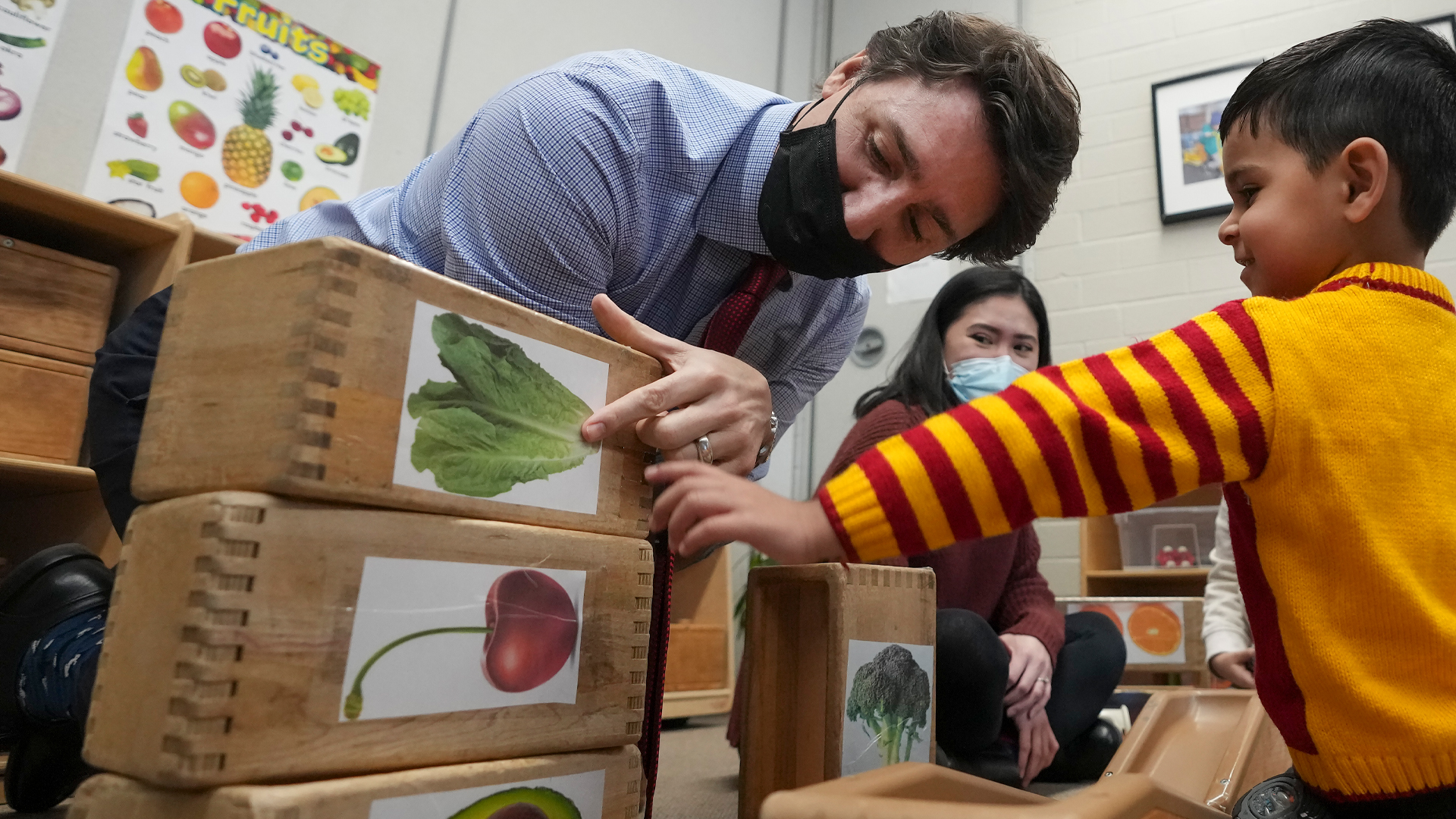
This spring, Ontario became the 13th and final jurisdiction in Canada to sign an early-learning and child-care agreement with the federal government. Now that agreements are in place with each of Canada’s provinces and territories, Prime Minister Trudeau’s dream of a Canada-wide child-care system seems well on the way to becoming a reality. Although each agreement has slightly different conditions, all require the average fees for licensed child care outside Quebec (which has long had its own system) to fall by 50 per cent by the end of 2022 and to reach an average of $10 per day by 2025-26.
Although many commentators are singing the praises of this universal child-care system, too few have recognized its inherent flaws and thus overlook a better policy for aiding families. Direct cash transfers to families – similar to Harper-era programs continued and tweaked by an earlier Trudeau government – would be a better option that gives greater choice to parents.
The first flaw in the new universal system is its selective definition of child care. These bilateral child-care agreements consider only licensed group care to be worthy of state support. Yet, fundamentally, child care is the care of a child, regardless of who does it. Parents care for children. Relatives care for children. Friends care for children. But the current federal-provincial funding arrangement subsidizes only institutional, licensed child care.
This leads to a second flaw in this system. Although this new social program is touted as universal, it will likely benefit only a minority of Canadian families. Based on my calculations from Statistics Canada data, prior to the pandemic, only 41 per cent of all children aged 0-5 were cared for in licensed child-care facilities eligible for federal-provincial funding. Fully 43 per cent of children were primarily cared for by a parent and a further 13 per cent were cared for by another relative, such as an aunt or grandparent – forms of child care that are not eligible for the new federal-provincial funding. During the pandemic, an even greater proportion of children were cared for by their parents at home, with more than one-quarter of parents questioning the safety of group child care throughout the pandemic.
How to grow an accessible, high quality, equitable child-care system
Four ideas to make Quebec’s child-care system a model for all of Canada
A third flaw inherent in such a universal child-care system is that it is virtually impossible to achieve high-quality child care for all at a low cost. Quebec has had a system akin to universal child care for decades, yet reviews of Quebec’s universal system document sub-par outcomes for children. For instance, Baker, Gruber and Milligan found lower social and behavioural skills in the cohort of children raised after the introduction of Quebec’s group child-care centres, compared to children who came before the Quebec system. Mrozek, Mitchell and Dijkema find that “in no small part, the costs of daycare hinge on the ratio of staff to children,” a metric which “is also one of the more easily measured indicators of quality.” To raise staff ratios above those of Quebec to the current standards of Ontario, they argue “that national daycare will cost more than the federal government has budgeted and more than provinces (perhaps) realize.” Their study estimates that, in total, the cost of a quality Canada-wide child-care system could rise to $36 billion.
Fourth, a universal child-care system is a proposed solution to a misdiagnosed problem. If affordability and quality of child care, and if gender equality in the workforce are the policy problems, a system of universal child care makes some sense. But what if the unaffordability of licensed child care is due to a lack of disposable income caused more by high housing prices and low wages from low worker productivity than by high child-care fees? What if the best-quality child care was not found in licensed child-care centres run by early childhood educators but in homes run by parents? What if there is a sizeable contingent of mothers (and fathers) who would prioritize raising their children over furthering a full-time career if it were financially possible? If so, a universal child-care system is a Band-Aid solution at best and a perverse economic incentive at worst.
We don’t need to reinvent the wheel to address the flaws with a universal $10-a-day child-care system. The Harper government introduced the universal child-care benefit in 2006 as a per-child cash payment that went to every family, regardless of their economic condition, family arrangement or child-care preferences. The Trudeau government built upon this policy by introducing the Canada child benefit in 2016, making the benefit more generous and making it means-tested to target the families most in need of it. Even provincial governments have recognized the value of these unconditional cash transfers to families. The NDP government of British Columbia, one of the most progressive provincial governments in Canada, introduced the B.C. child opportunity benefit in recent years.
The benefits of cash transfers to families – whether available to all parents as they were under the Harper approach or income-tested as they were under the previous Trudeau approach – are plain. They respect the child-care arrangement choices of all parents and give the parents who receive them the freedom to use that cash to offset the other costs of raising a child, if they wish. It is administratively much simpler than creating multiple programs, approving funding applications and auditing licensed child-care providers. It also creates greater competition within the child-care sector by not favouring one type of child care while crowding out others.
Fundamentally, directly funding families through the benefits we already have in place provides greater choice in child care for all parties. In a liberal democracy such as Canada, that’s a good thing that should be expanded, not overrun by a not-so-universal child-care system.










